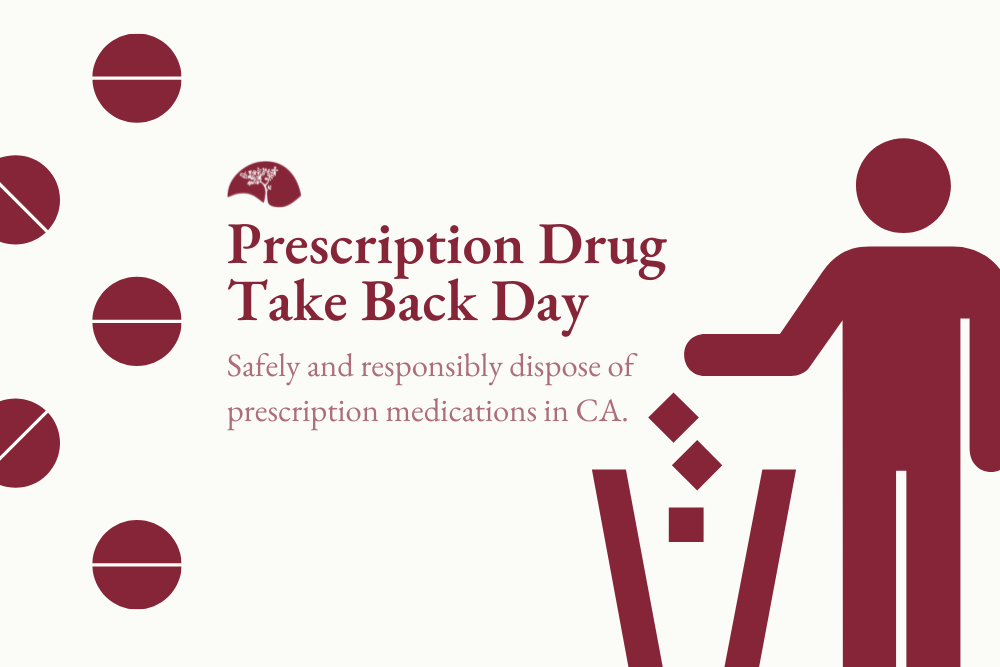Do you have medications in your cabinet that were prescribed ages ago, but for some reason never used up? These are a potential tragedy waiting to happen.
The Dangers of Unused Prescription Drugs
Since 1979, all drugs have been labeled with expiration dates. After a medication passes that date, its chemical composition may change, rendering it ineffective and even dangerous. (Humidity can speed up the aging process, so prescriptions you are still taking are best stored in cool, dry places.)
An additional risk (common to all drugs, but especially risky with anything shoved into a corner and forgotten) is that someone besides the original recipient of the prescription may find it and take it. Anyone can confuse an old bottle with a medicine of their own, and the most sensible person can forget that prescriptions are formulated for individuals and potentially poisonous to anyone else, even with the same symptoms.
The danger multiplies exponentially if there are small children around. Over 50,000 children a year wind up in emergency rooms after sampling prescription meds, expired or otherwise. (With nearly 12 percent of the U.S. population living in California, that extrapolates to about 5,900 children poisoned by prescription drugs statewide.)
Even adolescents may take prescription drugs out of curiosity, if they’ve heard peers talk about getting “high.” Worse, hundreds of thousands of adolescents and adults (including over 200,000 Californians) are addicted to opioids, benzodiazepines, or some other prescription drug.
National Prescription Medication Take Back Day
Curious kids (and animals), as well as people desperate for drugs, can find unused medication even after it’s thrown away; hence, disposing of old pills isn’t as simple as tossing them into the nearest trash can. Flushing medication down the toilet isn’t recommended either, due to possible pollution and dangers to wildlife.
The safest approach is to do with unused medications as you would with toxic waste: give them to the experts to deal with. If you’re reading this in April, your timing is right for National Prescription Drug Take Back Day (April 30). Started in 2010 by the Drug Enforcement Administration, this is a program where law-enforcement offices throughout the country set up Collection Sites to drop unneeded medications for safe disposal.
(Check the DEA website for an official Collection Site near you. As of this writing, the closest Sites to Hemet are in San Bernardino County, but more places will open across the country as the official date gets closer.)
Other Medication Take Back Programs
If you miss Take Back Day (or don’t want to wait for it), there are other “take back” options open year round. The National Association of Boards of Pharmacy maintains an online Drug Disposal Locator Tool that can be searched for recommended locations. (One such location is overseen by the Hemet Police Department.)
Or ask for recommendations from your own pharmacy, your doctor, your city or county health office, or a Poison Control Center. If all else fails, go to a standard toxic-household-waste-disposal site (dump the medicine into a can of paint or antifreeze if necessary).
Closing Note: Medication and Addiction
If you suspect anyone in your household has a prescription-medicine addiction—which may be the case if they are evasive about how much they take, or are spending excessive amounts of time and money on the medication—do not sneak their pill supply off to a take-back program when they aren’t looking. However justifiably you wish they had no more pills around, it won’t solve the larger problem. Plus, they are likely to suffer painful, even potentially lethal, withdrawal symptoms if their supply is cut off abruptly. Get advice from a doctor, therapist, or intervention specialist if you have addiction in the family.
If a family member has recently been treated for addiction, remove your own prescription medicines from shared cabinets: temptations to relapse will be strong for several months, and your loved one doesn’t need easily visible pills adding to the pressure. Addiction affects the whole family, and the whole family needs to stay committed to supporting the recovering member in sobriety.
Finally, as an extra precaution, scratch out all prescription numbers and identifying information from your medication bottles before disposing of them, or someone may find the bottle and obtain a “refill” under false pretenses. Do your part to keep not only old medications, but all dangerous drugs, from doing harm to anybody.
Help for Prescription Drug Addiction in Hemet, California
If you or someone in your family is addicted to prescription drugs, professional detox treatment and counseling are vital aspects of recovery. Before you just throw out the pills, have your treatment provider chosen and your place reserved. If you’re convenient to the Inland Empire region of California, we hope you’ll consider Hemet Valley Recovery Center & Sage Retreat for a hospital-based program customized to your individual needs. Contact us today and request a free consultation.
Recommended articles:
- “Don’t Be Tempted to Use Expired Medicines.” (U.S. Food & Drug Administration)
- “Emergency Department Visits Involving the Accidental Ingestion of Opioid Pain Relievers by Children Aged 1 to 5.” (Substance Abuse and Mental Health Services Administration)
- “Prescription Drug Abuse Statistics.” (National Center for Drug Abuse Statistics)
- “Substance Use in California: A Look at Addiction and Treatment.” (California Health Care Foundation, October 2018)
- “Take Back Day.” (Drug Enforcement Administration)
- “Where and How to Dispose of Unused Medicines.” (U.S. Food & Drug Administration)


